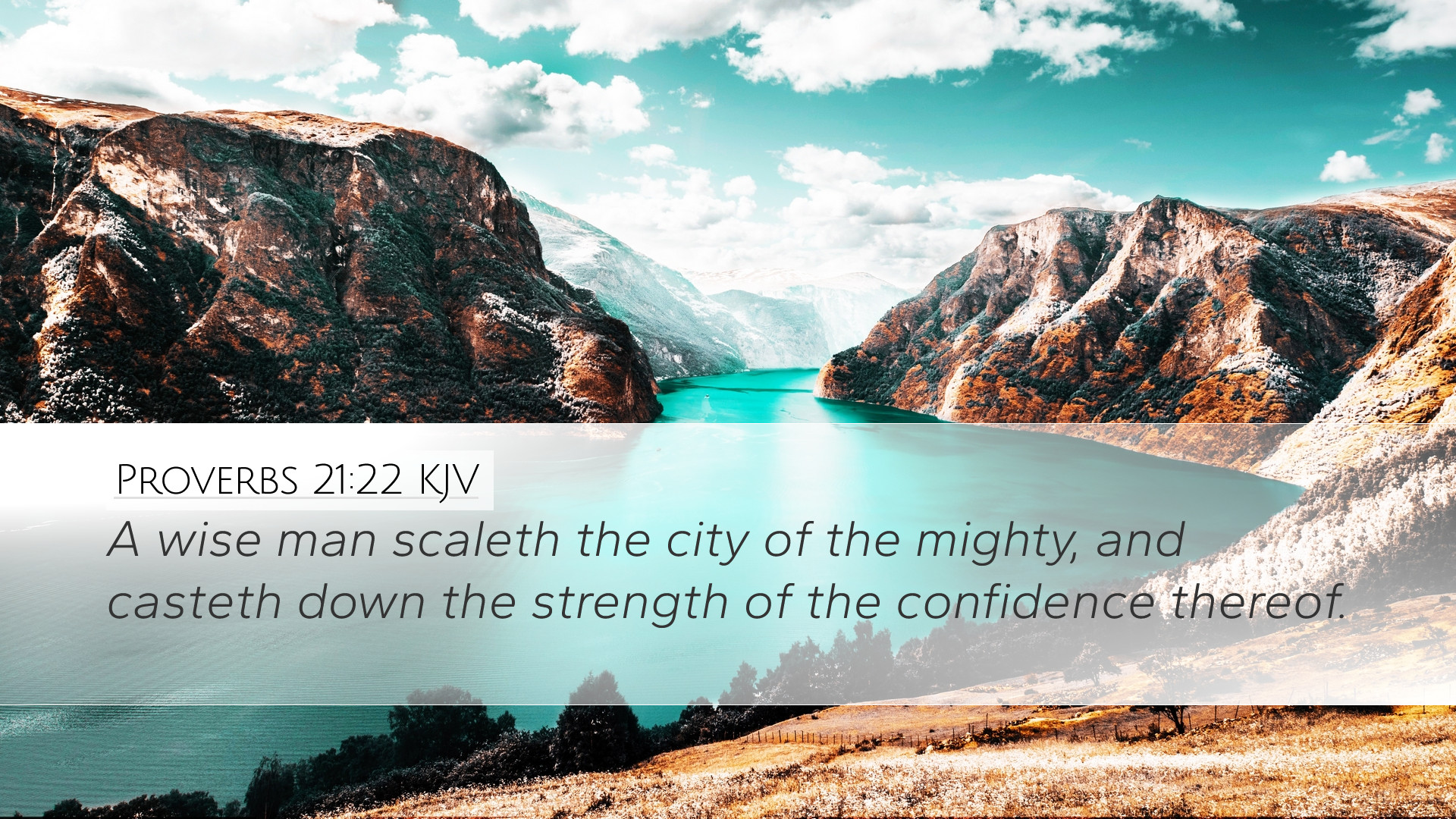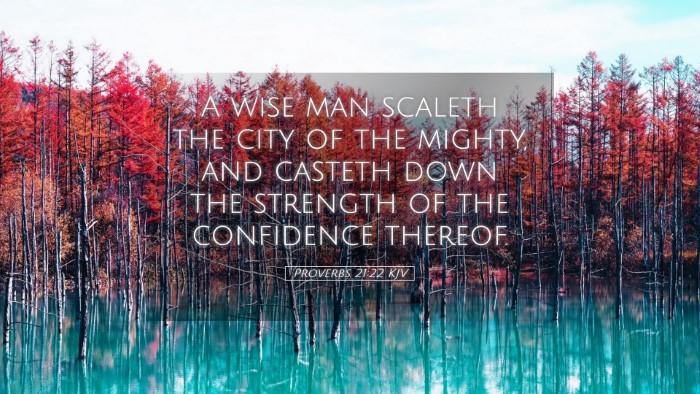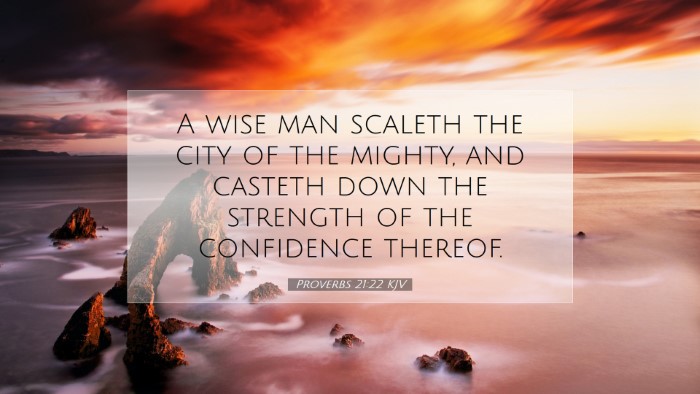Proverbs 21:22 Commentary
Bible Verse: Proverbs 21:22 - "A wise man scaleth the city of the mighty, and casteth down the strength of the confidence thereof."
Introduction
This verse offers profound insights into the nature of wisdom and strategic thinking in overcoming obstacles and adversities. The rich tapestry of biblical wisdom literature provides a backdrop for understanding the significance of wise counsel and the application of intelligence in daily life. In this commentary, we will draw upon insights from prominent public domain commentators including Matthew Henry, Albert Barnes, and Adam Clarke.
Wisdom as a Tool for Victory
Matthew Henry's Commentary:
Matthew Henry emphasizes the strategic advantage that wisdom provides against formidable challenges. He states that a wise man "scales" the city, signifying not only determination but also the ability to navigate through difficult circumstances. The metaphor of a city often represents a place of strength and defense; thus, scaling it implies a conquest of barriers that would typically deter the unwise.
Albert Barnes' Insights:
Albert Barnes interprets the “mighty” as indicating the strongholds of wickedness or opposition. He notes that the wisdom exercised by the man is not merely intellectual but is also reflective of moral and spiritual insight. Barnes suggests that the "strength of the confidence" refers to the trust and reliance that the oppressor has in their power. The wise man, through his strategic maneuvers, effectively undermines this confidence, echoing the biblical principle that it is not by might but by wisdom that victory is achieved.
Adam Clarke's Commentary:
Adam Clarke delves into the practical application of this passage. He asserts that this verse illustrates the nature of true leadership and the effectiveness of strategic planning. Clarke points out that a wise leader, observing the strengths and weaknesses of a stronghold, uses discernment to dismantle overconfidence among foes. This virtue of prudence is vital to overcoming challenges and suggests that wisdom is foundational to true success.
The Nature of Confidence and Strength
This verse also invites reflection on the nature of confidence, which can be an asset or a liability. The “confidence” referred to in the verse, if misplaced, can lead to downfall. Matthew Henry articulates that false confidence often accompanies tyranny and oppression, where those in power believe themselves invincible. In contrast, the wise man approaches with humility and prudent insight, making him not only resilient but also a profound disruptor of flawed systems.
Interpreting "Scaling the City"
The phrase "scaleth the city" can be seen as both a literal and metaphorical conquest. In a literal sense, it may refer to military strategies where fortresses are taken by wise leaders. The applications extend to personal battles, as wisdom enables individuals to confront their inner cities—places of mental and emotional strongholds. Albert Barnes emphasizes that wisdom dismantles arguments and strongholds of thought that oppose true understanding.
Examples from Scripture
- David's Conquests: David exemplified the wise man in multiple instances where his strategic mind and reliance on divine wisdom led him to victory over Goliath and later, the entire Philistine army.
- Solomon’s Reign: Solomon, as the archetype of wisdom, ruled over a mighty kingdom not merely due to military strength, but through wise governance, reflective of the principles stated in this proverb.
- Jesus and His Teachings: In the New Testament, Jesus often inverted worldly wisdom, demonstrating that true strength is found in humility and servitude, where the wise man conquers not through power but through truth.
The Role of the Wise in Society
In contemporary application, the insights from this verse serve as a reminder of the necessity of wise leadership in society. The responsibility falls on leaders—be they spiritual leaders, political figures, or community organizers—to approach challenges with wisdom. As both Henry and Clarke suggest, such wisdom is accessible through a relationship with God, who promises to impart wisdom generously to those who ask (James 1:5).
Conclusion
Proverbs 21:22 encapsulates the essence of wisdom as an agent of transformation. A wise individual, whether in biblical times or today, possesses the craftiness to navigate through the complexities of life. They are equipped not only to build but to dismantle barriers that hinder progress and justice. The teachings of Matthew Henry, Albert Barnes, and Adam Clarke converge on the understanding that true wisdom results in strength through humility, discernment, and strategic insight.
In encouraging wise practices among believers and society at large, this passage serves to remind all disciples of the crucial role wisdom plays in achieving lasting victories across diverse terrains of life.


